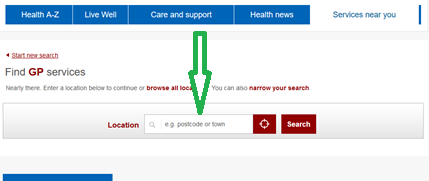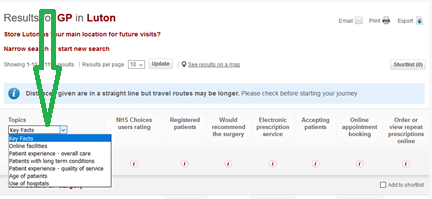It can be very frustrating if your doctor doesn’t listen to you. One of the most common reasons for unhappiness with health care is doctors not listening to their patients. Listening is part of the art of communication. A poor bedside manner, with a doctor that doesn’t listen to symptoms or patient needs can mean you are not understood. The art of listening is one of the most common reasons for complaints and patient dissatisfaction. Patient surveys in England have consistently shown patients want better communication with their doctor. There are many examples of doctors’ being described as arrogant, without compassion, making the patient feel like an inconvenience, rude or unfriendly. These could all be in part due to a doctor not listening to you the patient.
Published research, such as Doctor-Patient Communication: A review (2010) have identified that many doctors overestimate their ability to communicate. A doctor that thinks they have strong communication skills may believe they are listening and talking to patients well and that their patients are happy. In reality patients may feel that the GP doesn’t listen, is unfriendly, rude or has a poor attitude.
Effective patient to doctor communication is key to a healthy patient GP relationship. There are huge benefits to being able to discuss problems with a doctor in a constructive manner. A patient needs to feel that the doctor understands their feelings about their illness and are willing and able to offer help and support.
What Can I do if my Doctor has a Poor Bedside Manner
If you feel like your doctor has a poor bedside manner and poor listening skills it may seem hard to improve the situation. Many patients feel reluctant to bring the topic of communication up with their GP. It is difficult to confront someone to highlight their weaknesses, but as a patient you have a number of options including moving practice, changing GP within your current practice, or trying to change your current situation.
Can I Move to a Different GP Practice if my Doctor Doesn’t Listen?
As a patient in England you have the right to move to a different GP Practice. The BestDoctorNearMe.co.uk How to move GP page has full details of how to do this. In simple terms you need to find another practice that will accept you as a patient and register with them. No reason needs to be given when leaving or joining a new surgery. When leaving your current practice some patients may want to provide feedback that they think a certain doctor has a terrible bedside manner or doesn’t listen to try and improve the situation for remaining patients. You do not have to give a reason when leaving or joining a new surgery, but you can provide feedback to the practice manager if you would like.
How Can I Find a Doctor with Great Communication Skills
Moving to find a doctor with great communication skills, including one that will listen to your concerns is a right of NHS patients in England. However how do you know you will not experience the same problems in a new surgery? The NHS collects information highlighting the best communicating GP Practices in England. BestDoctorsNearMe.co.uk publish this NHS information so you can compare surgeries close to your home and find the best practice for listening and communication. Follow the steps highlighted below:
- Go to the BestDoctorsNearMe.co.uk GP Ratings page
- Enter the town or postcode you are interested in.

- In the ‘Topics’ section choose ‘Patient Experience’

- Click ‘Update Results’
The ‘Being listened to’ and ‘Explanations of tests and treatment’ measures will help compare GP Practices and find the best communicators in your area. Both measures show results from the GP Patient Survey. As the title suggest, this is a survey of patients were they are asked to give their views on care provided by their GP. The NHS conducts this survey twice a year and so results will be up-to-date for 2017.
The theory is that the best placed people to review how good care and treatment provided is patients themselves. Results are shown for all surgeries in the area chosen. Practices are split into three broad categories.
- Among the worst – highlighted by an exclamation mark
- Among the Best – indicated with a tick
- Those in the middle – marked with an ‘ok’
Finding Practices that have a tick for both ‘being listened to’ and ‘explanations of tests and treatment’ could indicate practices with strong listening and communications skills. Further comparisons are possible by using the percentages attached to each measure. The higher the score the better (maximum is 100). Practices with a tick and a score of over 90% have been rated better by their patients than practices with an ‘ok’ or exclamation mark and a percentage score in the 70’s for example.
Can I Change Doctor Within the Same GP Practice due to Communication Problems?
One potential solution is to change doctor within the same GP Practice. Asking to Change GP within your current surgery is not uncommon. This should be quite straightforward, simply ask not to see your current doctor, or ask to see another doctor by name when you book the appointment. You do not need to give a reason when asking to see a different doctor within the same practice and it is probably quite common.
Moving GP Practice may not be practical for some people due to transport or other issues. If your practice has more than one GP and the problem with listening and not taking your views into consideration seems to be with only one GP within the practice, then changing doctor in the same surgery could be the answer.
How to Improve my Doctors Listening Skills
It may not be practical to move Practice or change GP and so the only option could be to try and improve your current doctors listening and communication skills. This can be tricky as recent research (Doctor-Patient Communication: A review (2010)) indicates many clinicians believe they have stronger communication skills than in reality. The journalist Maria Shriver advocates a number of steps to improve communication between you and your doctor. This includes:
- Taking time to answer questions asked by the GP. It may seem like the GP has their own agenda, but these questions could help them understand your problem and make them more prepared to listen to your views..
- Provide a full but concise explanation. If a doctor asks where is the pain, tell them, but also tell them when it started and what you were doing at the time.
- Ask questions. If you don’t understand something, don’t be afraid to ask for an explanation or further information.
- Keep your cool and maintain a respectful approach. To make sure you are heard try and keep your cool and language under control. A civil approach will help you to be heard.
Summary: What can I do if my Doctor Doesn’t Listen
Effective medical treatment relies upon a doctor who listens to your needs and symptoms. If your doctor doesn’t listen, or take in what you are telling them it can be very frustrating. It is distressing if you are not happy with your doctor as they are so important to your health. Feeling unhappy with your GP is difficult with uncertainty about what you can do or what help is available. If you are not satisfied with the care and communication provided by your local GP you are not alone. Unfortunately many people within the English NHS and private system feel the same way, but help is available. As a patient in England you do not need to suffer a bad patient doctor relationship. You have the right to leave your GP Practice and find another surgery – as long as they let you register. This is not practical in all situations, but if possible when making appointments you can ask to see a specific GP, or not to see a GP you are unhappy with. If there are multiple GPs at your surgery this could be a solution.